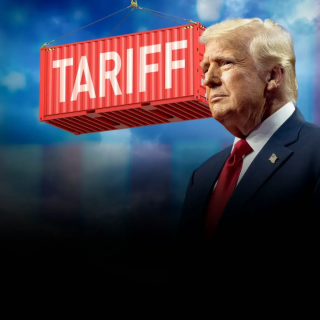


The U.S. Supreme Court's tough questioning of President Donald Trump's global tariffs has fueled growing speculation that they will be overturned, but it also raises the potential for further turmoil as he is expected to shift to other trade tactics after an adverse ruling.
On Wednesday, during oral arguments, the Supreme Court justices cast doubt on Trump's authority to impose tariffs under the 1977 International Emergency Economic Powers Act (IEEPA), which contains no reference to tariffs—only language about regulating imports during a national emergency declared by the U.S. president.
"Based on the justices' questions, the IEEPA tariffs appear to be in jeopardy," said Damon Pike, a leader in BDO USA's customs and trade services practice. He added that all but Samuel Alito and Clarence Thomas of the court "appeared skeptical that the IEEPA gives President Trump the authority to impose unlimited tariffs on every product imported from every country in the world."
However, Pike said that if the Trump administration loses, they will simply implement another trade law, a view widely shared by trade lawyers, senior Trump administration officials, import companies, and analysts.
These groups are just getting used to the idea of a somewhat more stable trade environment, bolstered by a year-long U.S.-China trade truce and more U.S. deals with Southeast Asian countries that have lowered IEEPA tariffs to more manageable levels. Companies have been demanding certainty and predictability in tariffs so they can plan their investments, but Conference Board policy executive David Young said he doesn't see any relief.
"We still don't have clarity—CEOs are still in a somewhat precarious position about what the future looks like," said Young, who briefed about 40 CEOs after the Supreme Court arguments. "Even if this decision goes against IEEPA, the uncertainty persists." A ruling is unlikely before early 2026, Young said, and companies are completely unaware of the potential return of more than $100 billion in IEEPA tariffs paid so far if Trump loses. (alg)
Source: Reuters
American consumers struggling to access food assistance payments due to the government shutdown are unable to fill their shopping carts, and that's "hurtful," according to the company behind Stop &...
US President Donald Trump announced tariff cuts on fentanyl-related products from China, reducing them from 20% to 10%. This decision is part of an agreement reached at a summit in South Korea last Oc...
As the U.S. government shutdown disrupts federal employee paychecks across the country, it also exacerbates the financial hardship of attorneys who represent the poorest members of society when they a...
US President Donald Trump said Thursday that he had agreed with President Xi Jinping to cut tariffs on China in exchange for Beijing cracking down on illegal fentanyl trade, resuming purchases of U.S....
China has confirmed that President Xi Jinping will meet with US President Donald Trump in South Korea on Thursday. The meeting is a highly anticipated one that traders and investors on both sides of t...
The Bank of England's MPC voted 5-4 to keep Bank Rate at 4% at its November 5 meeting, in line with expectations. Four members favored a 25 bps cut to 3.75%, reflecting growing support for easing. Policymakers noted that CPI inflation has peaked...
The U.S. Supreme Court's tough questioning of President Donald Trump's global tariffs has fueled growing speculation that they will be overturned, but it also raises the potential for further turmoil as he is expected to shift to other trade...
Oil prices edged higher on Thursday (November 6), boosted by easing concerns over a potential oversupply as sanctions against Russian companies began to take effect. After closing at a two-week low in the previous session, Brent crude futures rose...
 Asian stocks opened lower on Tuesday, reversing Wall Street's rally fueled by Amazon's massive $38 billion deal with OpenAI. Stock markets in South...
Asian stocks opened lower on Tuesday, reversing Wall Street's rally fueled by Amazon's massive $38 billion deal with OpenAI. Stock markets in South...
 The economic activity in the United States' (US) manufacturing sector continued to contract in October, with the Institute for Supply Management's...
The economic activity in the United States' (US) manufacturing sector continued to contract in October, with the Institute for Supply Management's...
 Asia-Pacific markets declined on Wednesday, following a decline on Wall Street, which was driven by concerns about the valuations of artificial...
Asia-Pacific markets declined on Wednesday, following a decline on Wall Street, which was driven by concerns about the valuations of artificial...
 World markets kicked off November in an upbeat mood, riffing off buoyant company earnings and calmer trade relations while batting away OPEC's...
World markets kicked off November in an upbeat mood, riffing off buoyant company earnings and calmer trade relations while batting away OPEC's...